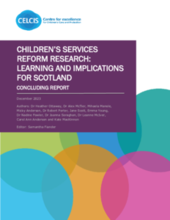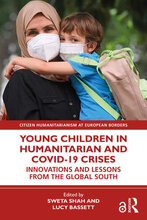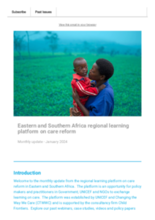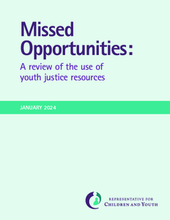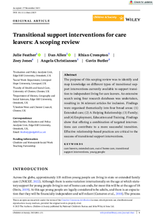Demographic Data
|
Sources: World Bank, UNICEF, UNDP HDR 2015, DHS 2013 |
Displaying 581 - 590 of 14551
The goal of this study was to improve the understanding of current children’s services structures and delivery models in Scotland and how services can best support the needs of children, young people and their families. The research looked at how services are provided and configured in Scotland and drew on a range of international evidence too.
This document presents an overview of the first version of the EU monitoring framework for the European Child Guarantee (ECG). It was developed by the Indicators’ Sub-Group (ISG) of the Social Protection Committee (SPC) and the European Commission, and endorsed by the SPC in November 2023.
These statements can be used in donor facing advocacy efforts. The purpose of these statements are to demonstrate to donors that care experienced experts, advocates and networks are calling for care reforms, including for the transition of residential care services, so that children can access more appropriate services and be raised in families.
The Child Rights International Network seeks a new Communications Manager to lead on planning and implementing their communications work.
This book investigates how organizations around the world responded to these dual challenges, identifying solutions, and learning opportunities to help to support young children in ongoing and future crises. Drawing on research and voices from the Global South, this book showcases innovations to mobilize new funds and re-allocate existing resources to protect children during the pandemic.
This is the monthly update of the Eastern and Southern Africa Regional Learning Platform published in January 2024.
The Canadian Government's Representative for Children & Youth released this report on youth justice resources which reveals a misuse of government funds to operate surplus youth justice services.
The purpose of this scoping review was to identify and map knowledge on different types of transitional support interventions currently available to support transition to independent living for care leavers.
The 2024 Global Outlook Prospects for Children: Cooperation in a Fragmented World examines how global fragmentation along geopolitical and economic lines will impact children in 2024 and beyond. It highlights eight key trends that will shape children’s lives and provides policy guidance to protect their rights and well-being amid this uncertainty.
Prospects for Children in 2024: Cooperation in a Fragmented World is the latest edition of the Global Outlook, a series of reports produced each year by UNICEF Innocenti – Global Office of Research and Foresight, which look to the key trends affecting children and young people over the following 12 months and beyond.

